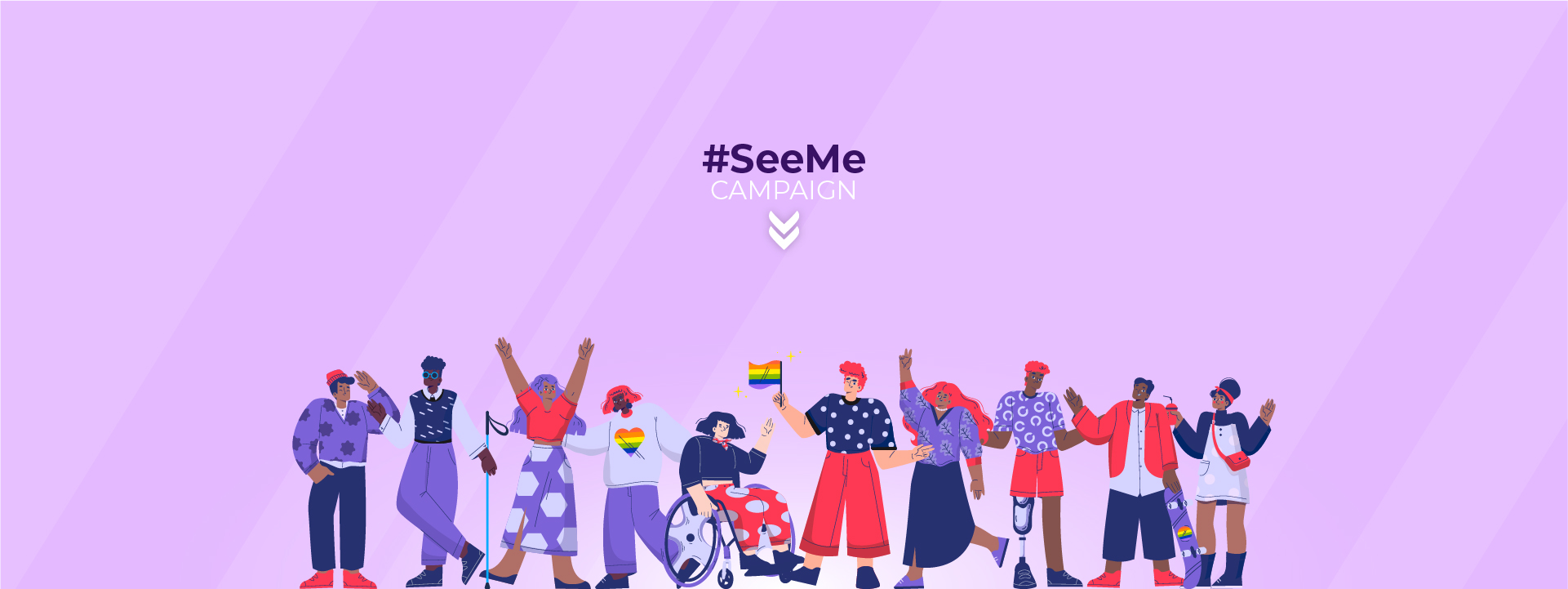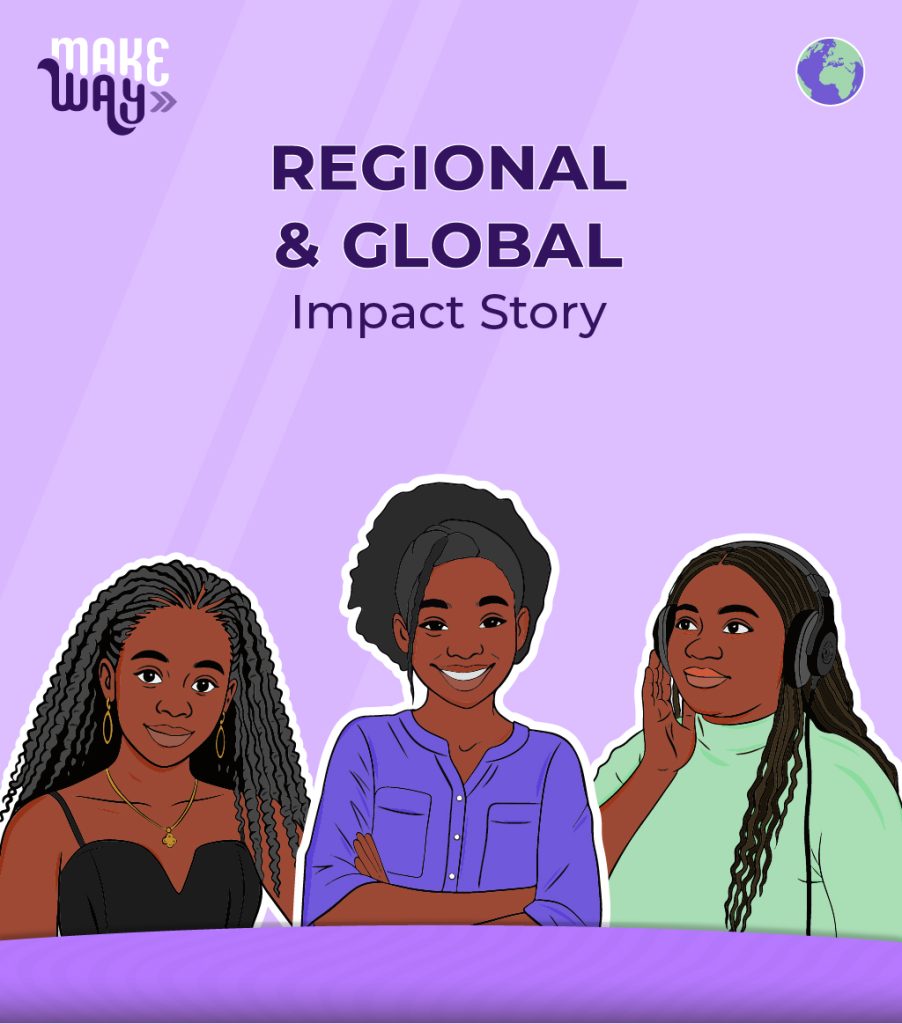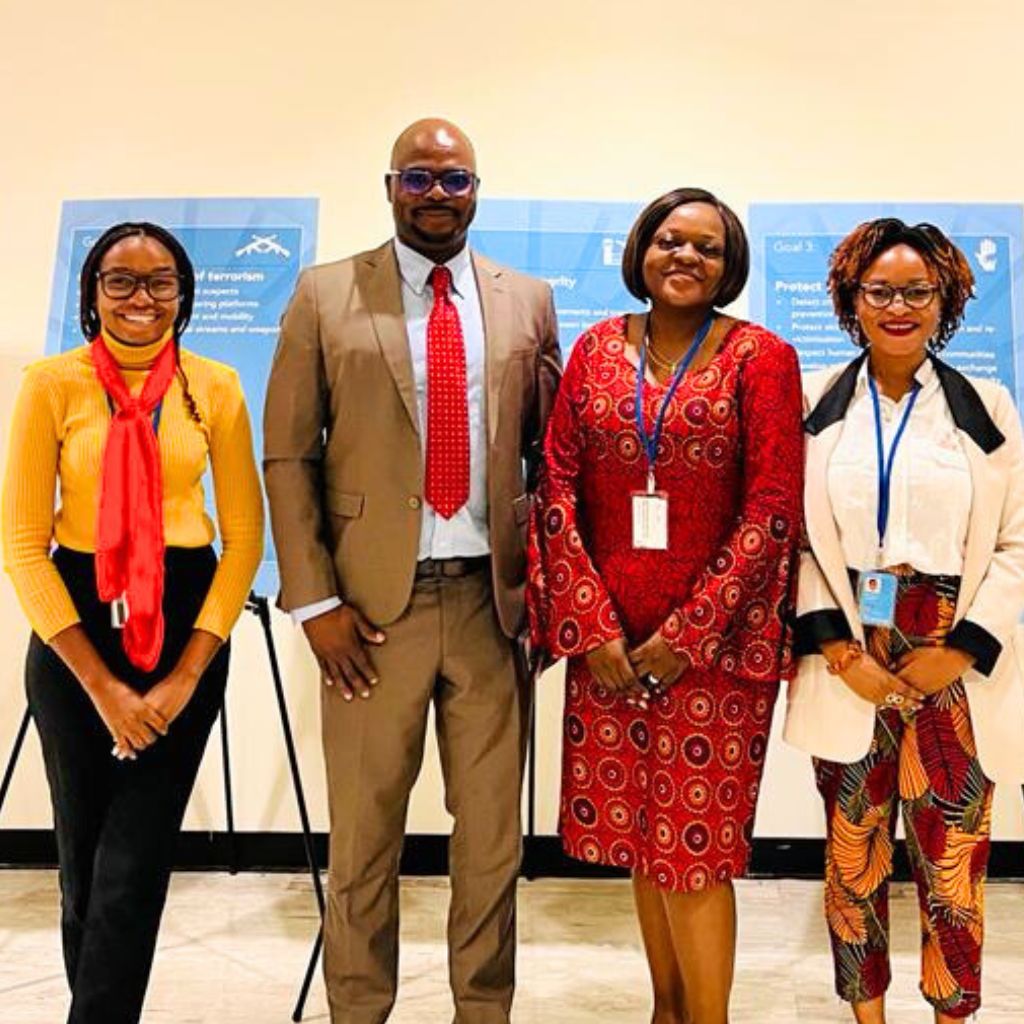Bertha Chulu, Elizabeth Warindi and Vilda Atieno
Beyond tokenism to meaningful youth engagement
Bertha Chulu, Elizabeth Warindi and Vilda Atieno
It’s time to make way for youth! Bertha Chulu, Elizabeth Warindi and Vilda Atieno are trailblazers as youth advocating for sexual and reproductive health and rights (SRHR) for all. In their countries Kenya and Zambia, they witnessed first-hand the inadequate access to SRHR services and fact-based information, especially for youth and those with a disability. These barriers are often a result of decision-makers and policymakers lacking knowledge of the needs and lived-realities of youth. With this in mind, Bertha, Warindi and Vilda represent the Make Way programme at regional and global level. It is their mission to advocate for everyone to realise their SRHR, especially minoritised young people. They spoke to us about meaningfully engaging youth, the challenges they face gaining a seat at the table and the impact of Make Way. Read more →
Meaningful youth engagement
Meaningful youth engagement is about ensuring young people are actively involved in decision-making and policymaking processes. It applies the skills, knowledge and lived experiences of youth to develop impactful and inclusive policies, initiatives and laws that shape their lives. When it comes to SRHR, meaningfully engaging youth can enhance SRHR information and services becoming more accessible, tailored and effective for young people.
Young people play a crucial role in the Make Way programme. Make Way works with and for young people to understand their lived realities, applying these learnings to its intersectional SRHR advocacy work. Youth are substantively engaged through skills and capacity strengthening, mentorship, representation at all levels of the programme and, most importantly, a seat at the table.
Ticking a box
Before joining Make Way, Bertha, Vilda and Warindi faced many challenges getting a seat at the table as young people. A common issue was tokenistic representation of youth in different spaces. They discovered that organisations were often willing to have a young (marginalised) person present, but without giving them the agency to meaningfully participate in these spaces. Vilda shares: “Did I have a place at the table? No. Speaking from experience and being a young woman with a disability, if noticed that when people are having a meeting, they say: ”We need somebody with a disability to be part of this meeting.” It allowed them to tick a box, showing they had a person with a disability. Of course, I got to learn one or two things, but people continue to speak on your behalf. So, you are just there to fill the requirement.”
Beyond tokenistic representation, the youth representatives also expose persistent misconceptions that they encounter, particularly the notion that young people lack experience and knowledge because of their age – despite the contrary often being the case. Warindi explains: “People think that we are not qualified enough. They think we’re still kids and we don’t understand how the world runs. They think that we are naive in a way to want a better country or continent. And so, that’s the thing that holds us back.” All three of the youth representatives are well- accomplished individuals. They hold bachelor’s and master’s degrees, multiple awards for their activism and a plethora of experience in SRHR advocacy. Beyond their achievements, they also have what many policymakers and decision-makers lack when it comes to sculpting policies and laws impacting young people: first-hand knowledge of the lived experience of young people.
Youth driving change
Bertha, Vilda and Warindi have had to tackle these and many other everyday barriers to keep advocating for SRHR for all. Finding their place in SRHR spaces and beyond has not always been easy. However, since joining Make Way, the youth representatives can concur that they have been given a seat at the table.
The youth representatives have all had numerous opportunities to attend conferences, network and contribute to (inter)governmental processes. For instance, Bertha contributed to the development of a civil society shadow report on Zambia’s Voluntary National Review. She particularly brought in the lived experiences of youth in Zambia to offer new recommendations to the Zambian government on how to achieve the Sustainable Development Goals (SDGs). This process was a fruitful learning opportunity for Bertha. She says: “I had never contributed to a national level document like that. It was my first time. And what stood out for me was that I was probably the youngest person to add to its progression.” After the development of the shadow report, Bertha also headed to New York for the High-Level Political Forum 2023 to share the shadow report’s findings with other governments, civil society and decision-makers. It was at this forum where the government of Zambia showed interest in adopting the shadow report’s recommendations.
Still facing hindrances to access spaces
Despite the opportunities for the youth representatives to be part of different conferences and processes via Make Way, barriers still remain outside of the programme. For instance, they all share the same struggles in gaining visas to some of the locations, especially when meetings and conferences are held in Europe or the US. Warindi explains: “Last year I didn’t get to go to the CSW [Commission on the Status of Women] because of the visa process, which feels very discriminatory. One rallying call that I have, is to just have these conferences in areas that are accessible. For instance, the UN office in Nairobi is much more accessible to people from the Global South.”
Make Way for youth
For young people to have a seat at the table, as Warindi states, “they need to be seen and heard.” That’s why for the past year and a half, the youth representatives have created, produced and hosted their own podcast: Make Way for Youth. It brings to the fore conversations on SRHR in sub-Saharan Africa, diving into topics including meaningful youth participation, disability justice and intersectionality. Warindi shares: “We created a safe space for young people, and also ourselves, to be advocates and share our stories.” They’ve had numerous young people come onto the podcast, including advocates, politicians, religious leaders, policymakers and more – truly putting young people front and centre. With the Make Way programme coming to a close, Bertha, Vilda and Warindi are committed to strengthening meaningful youth engagement further – through their advocacy, by continuing their podcast and via other exciting new initiatives.
Article by Rhona MacGuire.
Photo: Bertha Chulu (outer left) and Chipasha Mwansa (Akina Mama wa Afrika) (outer right) at the High-Level Political Forum 2023.






